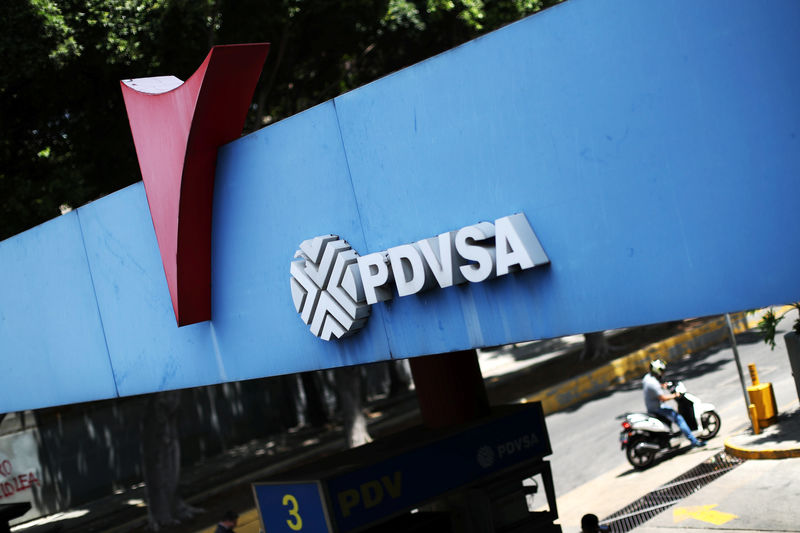By Marianna Parraga and Corina Pons
(Reuters) - Venezuela's opposition last week sent holders of state oil company PDVSA's 2020 bond a proposal to suspend legal actions for 90 days, the latest maneuver to avoid losing U.S. refiner Citgo, three sources familiar with the talks said.
The investors have not yet responded. The bond is backed by a 50.1% stake in Citgo, a PDVSA subsidiary, and the opposition says it does not have the money to make a $913 million payment due Oct. 28. The bondholders' ability to attempt to seize that stake if the payment is missed gives them significant leverage.
The proposal, known as a forbearance agreement, is one of several concurrent strategies the board is pursuing to save Citgo, a major priority for Venezuelan opposition leader Juan Guaido, who is recognized as the country's rightful president by more than 50 countries including the United States.
Two of the sources emphasized that the team remains focused on two other strategies. The first is to prepare a lawsuit in a U.S. court to argue the bond's issuance was illegal because President Nicolas Maduro did not seek the opposition-controlled National Assembly's approval. The second is to press U.S. President Donald Trump to take executive action to protect Citgo.
"Our short-time goal is to stop immediate legal action from both sides. Then, to reach a payment agreement," one of the sources said, adding that a forbearance deal could pave the way for more negotiations with the bondholders.
A spokesman for the Venezuela Creditors Committee, which groups holders of Venezuelan government and PDVSA debt, did not respond to a request for comment on the proposal. Neither PDVSA, which remains under Maduro's control, nor Guaido's ad-hoc PDVSA board responded to requests for comment.
Guaido, who presides over the National Assembly, invoked the constitution to assume a rival presidency in January, arguing Maduro's 2018 re-election was illegitimate and calling on the armed forces to back him. His appointees now control Citgo, but Maduro has retained a firm grip on power in the OPEC nation.
Maduro, a socialist who has overseen an economic collapse and stands accused of corruption and human rights violations, calls Guaido a U.S. puppet seeking to oust him in a coup and "steal" Citgo.
Washington sanctioned PDVSA in January as part of its push to cut off cash flow from Maduro, in the process also freezing PDVSA's proceeds from oil sales to U.S. customers. It is not clear how much money was affected, and Guaido's team has not been able to access it to make the payment.
Citgo's own debt covenants currently prevent it from making dividend payments to PDVSA, meaning it cannot use its considerable cash reserves to help the ad-hoc board pay the bond.
U.S. investment fund T. Rowe Price also offered to lend the opposition the money needed to make the payment, but only if the U.S. government eliminated an element of the sanctions preventing U.S. funds from trading Venezuelan bonds.

"There was expectation from some bondholders that money will show up, but the truth is that there is not possible to fully pay in the short term," one of the sources said.